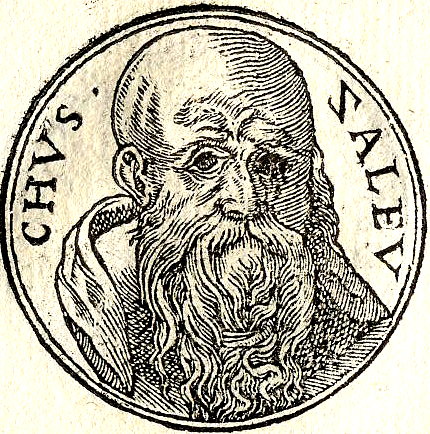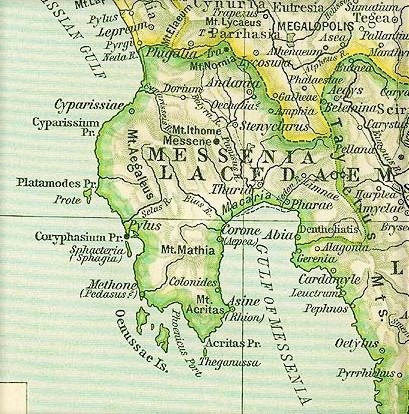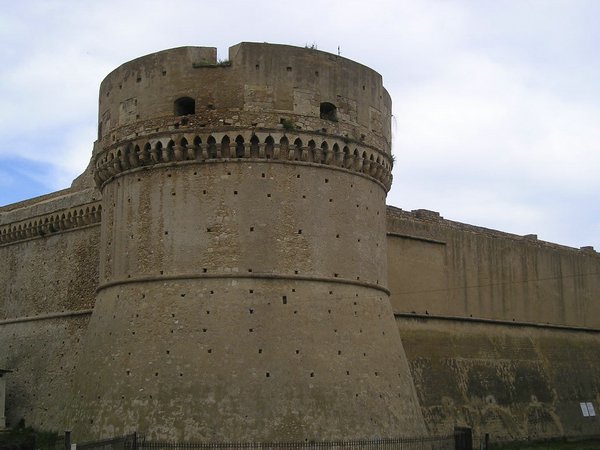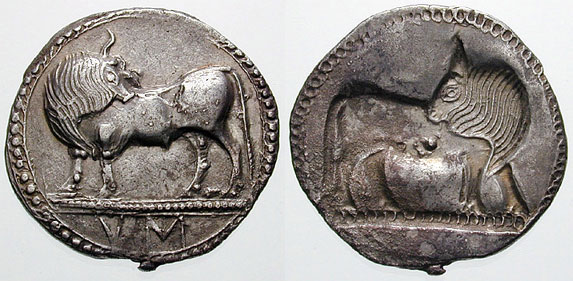|
Locri Epizephyrii
Epizephyrian Locris, also known as Locri Epizephyrii or simply Locri (), was an ancient city on the Ionian Sea, founded by Greeks coming from Locris at the beginning of the 7th century BC. It is now in an archaeological park near the modern town of Locri. It was one of the prominent cultural centers of Magna Graecia during the Greek Classical and Hellenistic periods, with Plato describing it as a city "governed by beautiful laws." It was known throughout the Greek world for innovations and expertise in music and dance, for its victorious athletes in the Panhellenic Games, for its laws and effective government and for its military achievements. It has become known in recent times for the special prominence it gave to women. Locri played a significant and enduring part in the history of Magna Graecia from its foundation to Roman times, which was well documented by Strabo, Pausanias, Eusebius of Caesarea, Plutarch, Polybius and Diodorus Siculus and has the added support of contempor ... [...More Info...] [...Related Items...] OR: [Wikipedia] [Google] [Baidu] |
Calabria
Calabria is a Regions of Italy, region in Southern Italy. It is a peninsula bordered by the region Basilicata to the north, the Ionian Sea to the east, the Strait of Messina to the southwest, which separates it from Sicily, and the Tyrrhenian Sea to the west. It has 1,832,147 residents as of 2025 across a total area of . Catanzaro is the region's capital. Calabria is the birthplace of the name of Italy, given to it by the Ancient Greeks who settled in this land starting from the 8th century BC. They established the first cities, mainly on the coast, as Greek colonisation, Greek colonies. During this period Calabria was the heart of Magna Graecia, home of key figures in history such as Pythagoras, Herodotus and Milo of Croton, Milo. In Roman times, it was part of the ''Regio III Lucania et Bruttii'', a region of Roman Italy, Augustan Italy. After the Gothic War (535–554), Gothic War, it became and remained for five centuries a Byzantine empire, Byzantine dominion, fully recove ... [...More Info...] [...Related Items...] OR: [Wikipedia] [Google] [Baidu] |
Zaleucus
Zaleucus (; fl. 7th century BC) was the Ancient Greece, Greek lawgiver of Epizephyrian Locris, in Magna Graecia. According to the Suda, he was previously a slave and a shepherd, and after having been educated he gave laws to his fellow-citizens. Some sources make him a Pythagoreanism, Pythagorean philosopher, although older ones put him as older than Pythagoras or even deny his existence altogether. They also attribute divine origin to his laws. Most probably, he devised the first written European law code, the Locrian code, in the 7th century BC. The code, however, is lost except for some later mentions and imitations which seem clearly anachronistic. These, which among other things mention that: It also banned the drinking of undiluted wine except for medical purposes. Although the Locrian code distinctly favored the aristocracy, Zaleucus was famous for his conciliation of societal factions. No other facts of his life at all are certain. According to legends, he punished adul ... [...More Info...] [...Related Items...] OR: [Wikipedia] [Google] [Baidu] |
Sicels
The Sicels ( ; or ''Siculī'') were an Indo-European tribe who inhabited eastern Sicily, their namesake, during the Iron Age. They spoke the Siculian language. After the defeat of the Sicels at the Battle of Nomae in 450 BC and the death of Sicel leader Ducetius in 440 BC, the Sicel state broke down and the Sicel culture merged into Magna Graecia. History Archaeological excavation has shown some Mycenean influence on Bronze Age Sicily. The earliest literary mention of Sicels is in the '' Odyssey''. Homer also mentions Sicania, but makes no distinctions: "they were (from) a faraway place and a faraway people and apparently they were one and the same" for Homer, Robin Lane Fox notes. It is possible that the Sicels and the Sicani of the Iron Age had consisted of an Illyrian population who (as with the Messapians) had imposed themselves on a native, Pre-Indo-European ("Mediterranean") population. Thucydides and other classical writers were aware of the traditions accordi ... [...More Info...] [...Related Items...] OR: [Wikipedia] [Google] [Baidu] |
Helots
The helots (; , ''heílotes'') were a subjugated population that constituted a majority of the population of Laconia and Messenia – the territories ruled by Sparta. There has been controversy since antiquity as to their exact characteristics, such as whether they constituted an Ancient Greek tribe, a social class, or both. For example, Critias described helots as "slaves to the utmost", whereas according to Pollux, they occupied a status "between free men and slaves". Tied to the land, they primarily worked in agriculture as a majority and economically supported the Spartan citizens. The proportion of helots in relation to Spartan citizens varied throughout the history of the Spartan state; according to Herodotus, there were seven helots for each of the 5,000 Spartan soldiers at the time of the Battle of Plataea in 479 BC. Thus the need to keep the helot population in check and to prevent rebellion were major concerns of the Spartans. Helots were ritually mistreated and ... [...More Info...] [...Related Items...] OR: [Wikipedia] [Google] [Baidu] |
Opus, Greece
Opus ( or Ὀπόεις) was an ancient Greek city that was the chief city of a tribe of Locri, who were called from this place the Opuntian Locrians, and the territory, the Opuntian Locris. It was located on the coast of mainland Greece opposite Euboea, perhaps at modern Atalanti. Its harbor was at Kynos. It stood at the head of the Opuntian Gulf, a little inland, being 15 '' stadia'' from the shore according to Strabo, or only a mile according to Livy. Opus was believed to be one of the most ancient towns in Greece. Pindar's ninth Olympian ode concerns Opus. It was said to have been founded by Opus, a son of Locrus and Protogeneia; and in its neighbourhood Deucalion and Pyrrha were reported to have resided. It was the native city of Patroclus, and it is mentioned in the Homeric Catalogue of Ships as one of the Locrian towns whose troops were led by Ajax the Lesser, son of Oileus the king of Locris, in the ''Iliad'' There were games called Aiantea and an altar at Opu ... [...More Info...] [...Related Items...] OR: [Wikipedia] [Google] [Baidu] |
First Messenian War
The First Messenian War was a war between Messenia_(ancient_region), Messenia and Sparta. It began in 743 BC and ended in 724 BC, according to the dates given by Pausanias (geographer), Pausanias. The war continued the rivalry between the Achaeans (tribe), Achaeans and the Dorians that had been initiated by the purported Return of the Heracleidae. Both sides utilized an explosive incident to settle the rivalry by full-scale war. The war was prolonged into 20 years. The result was a Spartan victory. Messenia was depopulated by emigration of the Achaeans to other states. Those who did not emigrate were reduced socially to helots, or serfs. Their descendants were held in hereditary servitude for centuries, until the collapse of the Spartan state in 370 BC. Dates Pausanias' standard dates Pausanias (geographer), Pausanias says that the opening campaign was a surprise attack on Ampheia by a Spartan force commanded by Alcmenes, List of kings of Sparta#Agiad dynasty, Agiad king of Spa ... [...More Info...] [...Related Items...] OR: [Wikipedia] [Google] [Baidu] |
Syracuse, Sicily
Syracuse ( ; ; ) is a historic city on the Italian island of Sicily, the capital of the Italian province of Syracuse. The city is notable for its rich Greek and Roman history, culture, amphitheatres, architecture, and as the birthplace and home of the pre-eminent mathematician and engineer Archimedes. This 2,700-year-old city played a key role in ancient times, when it was one of the major powers of the Mediterranean world. Syracuse is located in the southeast corner of the island of Sicily, next to the Gulf of Syracuse beside the Ionian Sea. It is situated in a drastic rise of land with depths being close to the city offshore although the city itself is generally not so hilly in comparison. The city was founded by Ancient Greek Corinthians and Teneans and became a very powerful city-state. Syracuse was allied with Sparta and Corinth and exerted influence over the entirety of Magna Graecia, of which it was the most important city. Described by Cicero as "the ... [...More Info...] [...Related Items...] OR: [Wikipedia] [Google] [Baidu] |
Jerome
Jerome (; ; ; – 30 September 420), also known as Jerome of Stridon, was an early Christian presbyter, priest, Confessor of the Faith, confessor, theologian, translator, and historian; he is commonly known as Saint Jerome. He is best known for his translation of the Bible into Latin (the translation that became known as the Vulgate) and his commentaries on the whole Bible. Jerome attempted to create a translation of the Old Testament based on a Hebrew version, rather than the Septuagint, as Vetus Latina, prior Latin Bible translations had done. His list of writings is extensive. In addition to his biblical works, he wrote polemical and historical essays, always from a theologian's perspective. Jerome was known for his teachings on Christian moral life, especially those in cosmopolitan centers such as Rome. He often focused on women's lives and identified how a woman devoted to Jesus should live her life. This focus stemmed from his close patron relationships with several pro ... [...More Info...] [...Related Items...] OR: [Wikipedia] [Google] [Baidu] |
Eusebius
Eusebius of Caesarea (30 May AD 339), also known as Eusebius Pamphilius, was a historian of Christianity, exegete, and Christian polemicist from the Roman province of Syria Palaestina. In about AD 314 he became the bishop of Caesarea Maritima. Together with Pamphilus, Eusebius was a scholar of the biblical canon and is regarded as one of the most learned Christians during late antiquity. He wrote the ''Demonstrations of the Gospel'', '' Preparations for the Gospel'' and ''On Discrepancies between the Gospels'', studies of the biblical text. His work '' Onomasticon'' is an early geographical lexicon of places in the Holy Land mentioned in the Bible. As "Father of Church History" (not to be confused with the title of Church Father), he produced the ''Ecclesiastical History'', ''On the Life of Pamphilus'', the ''Chronicle'' and ''On the Martyrs''. He also produced a biographical work on Constantine the Great, the first Christian Roman emperor, who was ''Augustus'' between A ... [...More Info...] [...Related Items...] OR: [Wikipedia] [Google] [Baidu] |
Crotone
Crotone (; ; or ) is a city and ''comune'' in Calabria, Italy. Founded as the Achaean colony of Kroton ( or ; ), it became a great Greek city, home of the renowned mathematician-philosopher Pythagoras amongst other famous citizens, and one of the most important centres of Magna Graecia. It was known as Cotrone from the Middle Ages until 1928, when its name was changed to the current one. In 1992, it became the capital of the newly established Province of Crotone. History The promontory of Kroton was inhabited by indigenous populations, perhaps Oenotrians and Japigi, in the Bronze Age and early Iron Age. Foundation Kroton's '' oikistes'' (founder) was Myscellus, from the city of Rhypes in Achaea in the northern Peloponnese, after consulting the Delphic Oracle who announced: :''Cross the vast sea and next to the Esaro (river) you will found Kroton.'' The Achaeans were motivated, like others of the Greek colonisation, by the lack of cultivatable land in their mounta ... [...More Info...] [...Related Items...] OR: [Wikipedia] [Google] [Baidu] |
Sybaris
Sybaris (; ) was an important ancient Greek city situated on the coast of the Gulf of Taranto in modern Calabria, Italy. The city was founded around 720 BC by Achaeans (tribe), Achaean and Troezenian settlers and the Achaeans also went on to found the nearby great city of Crotone, Kroton 10 years later. Sybaris amassed great wealth thanks to its fertile land and busy port so that it was known as the wealthiest colony of the Greek Archaic world. Its inhabitants became famous among the Greeks for their hedonism, feasts, and excesses, to the extent that "sybarite" and "sybaritic" have become bywords for opulence, luxury, and outrageous pleasure-seeking. Sybaris also ruled over smaller colonies throughout the area, and had an ''acropolis'' at Timpone della Motta near Francavilla Marittima about 10 km distant. The city of Sybaris was destroyed in about 510 BC by its neighbour Kroton and its population driven out, but its colonies in the area continued to exist. It was replaced ... [...More Info...] [...Related Items...] OR: [Wikipedia] [Google] [Baidu] |






